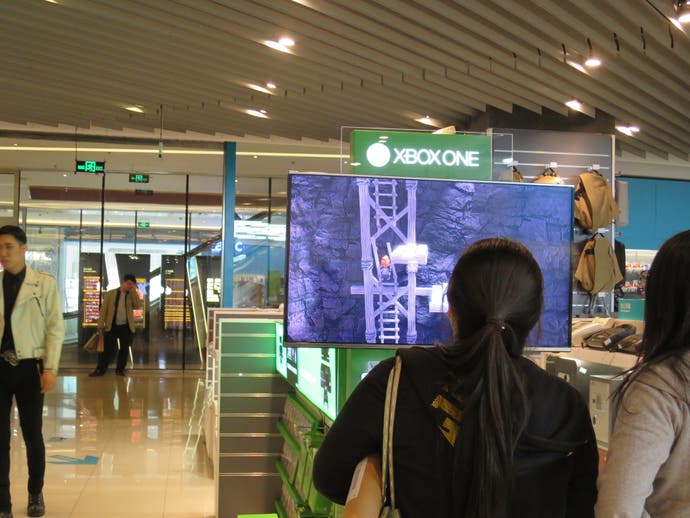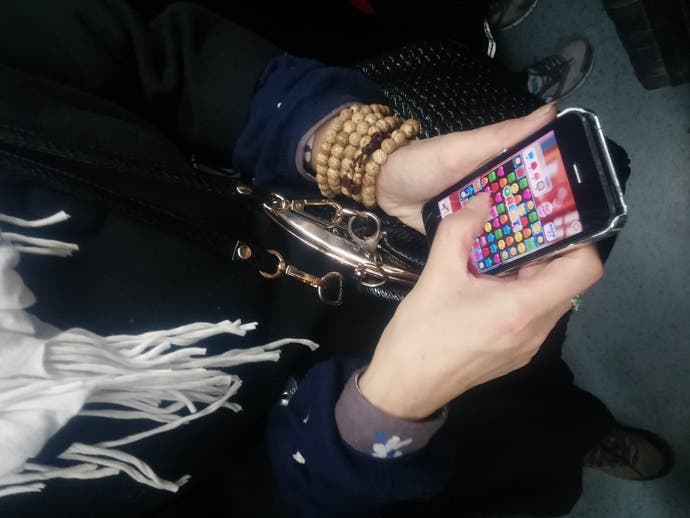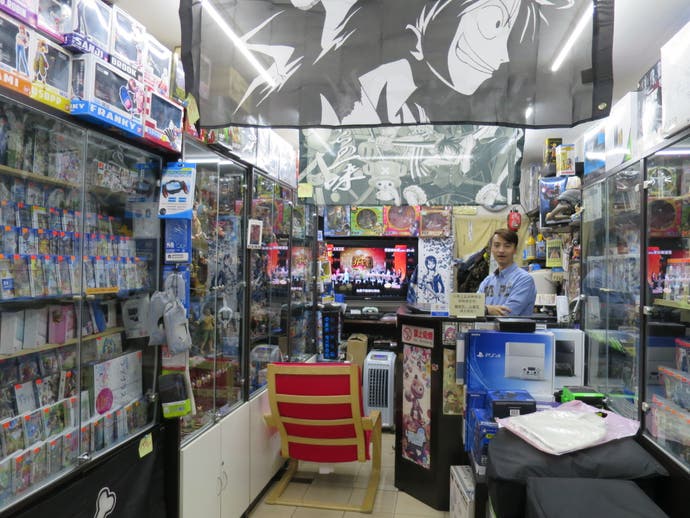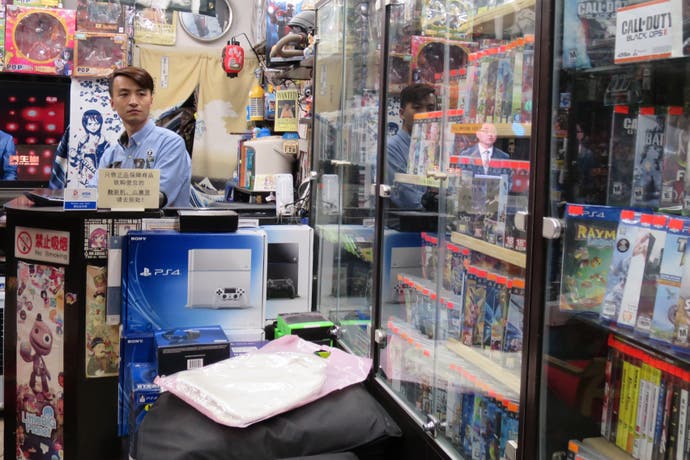Will Xbox One succeed in China?
Two months afters its release, we assess how Microsoft's console is faring in East Asia.
Huo Lei has been in the video games business for over ten years. The 33-year-old has a shop in the Gulou area of Beijing, an area still snaked by the old alleyways that used to dominate the ancient capital.
On this street you can find hip music venues and bars, vintage clothes stores and a host of grey market video game shops. They sell modified Xboxes and PlayStations, and imported machines from Hong Kong, Japan, America and Europe. Some have been in business since the PS2 era; the golden era, the sellers say.
Since 2000 consoles had been officially banned in China; a 14-year veto during which the PS2 and Wii sold millions elsewhere, forever expanding the console market in western countries. On January 6th of this year, the State Council of the People's Republic of China decided to lift the ban of video game consoles.

Microsoft has been the first foreign console maker to enter this new territory, its Xbox One the first ever console to be sold in mainstream electronics stores across the country.
After its release late in September on mainland China, the Xbox One sold over 100,000 units, a figure that eclipses the console's dismal launch in Japan. But since then the console has faced criticism from Chinese consumers, alongside government interference with its online video streaming partner.
It's a first-steps market in China and analysts are keenly watching how events unfold. Do western games such as Grand Theft Auto 5 and Call of Duty appeal to Chinese tastes? Will China, with its 1.3 billion people, become a potential pile of riches for console and game makers? Is Huo Lei worried that the official availability of Xbox One, and possibly the PS4, is going to dent his business?
Not at all, he says. "I'm not concerned. The official Xboxes have a lock so they can only play Chinese [region] games. I'm cheaper than the main stores." What's more, according to all the shopkeepers interviewed, the PS4 still appears to be vastly more popular than the Xbox One.
"The PS4 is the most popular now. But before, the Xbox 360 was more popular than the PS3 because you could download games for free", says Huo Lei.
An Xbox One stand greets shoppers as they walk into the Sundan store, an electronics chain in the fancy shopping area of Sanlitun, Beijing. There's a lot of interest as people pick up game boxes and watch people play on the demonstration TV. But there's not a single staff member manning the stand. When asked for more information they simply redirect customers to the official website, the only place it's possible to buy games.
Getting hold of a console is easy enough. Once you've got one you'll find the Chinese Xbox One has been locked into the Chinese language and inside the box paper cards are the QR codes with which to download games. There's a Chinese Xbox Live account to register with, though the Xbox Live store is pretty bare, with only 10 games available and the video streaming service disabled. According to unnamed sources, this is due to Microsoft's partner BesTV having trouble with government authorities taking another look at the service.
Consoles have been available in China both before and during the ban. Early machines included the FC Twin, a "Famiclone" that could play NES and SNES games. But few official consoles were on sale outside of the big cities, where they were often imported and chipped, before the PS2 arrived. During that period, China's economy grew at an astonishing rate.
Between 2010 and 2012, China's GDP increased by 40 per cent - akin to adding an economy the size of India to its own in those two years. It now vies with the US as the world's largest economy. With this wealth, millions have joined the ranks of China's growing middle class. With more money to spend and a desire to adopt western lifestyles, can more Chinese people learn to love consoles?
Console players are a very niche group compared to the number of PC gamers in China where online free-to-play games such as League of Legends are very popular. With consoles still to establish a mainstream presence, Microsoft's entry gives it the chance to make its Xbox brand synonymous with console gaming and living room entertainment.
Lisa Hanson, the founder of Niko Partners who specialise in analysing the Asian video games market, believes that consoles may become popular if there is "strong marketing and promotions...about the merits of console gaming".

But Microsoft faces an uphill battle. "Xbox One won't have a good future because it won't have good games", says Wang Qiang, a seller of imported consoles. The official launch lineup has been notably weak, with titles such as Destiny and Call of Duty: Advanced Warfare missing due to Chinese authorities' stringent restrictions. Available games include Forza Motorsport 5, Kinect Sports Rivals, Zoo Tycoon, Neverwinter Online and Naughty Kitties - a locally developed title that's been likened to a game for mobile phones.
The system itself costs ¥4299 RMB (£442) with Kinect, and without ¥3699 RMB (£380). This compares to ¥3600 RMB for a grey market PS4. Official games meanwhile range from ¥99 RMB to ¥249 RMB (£10 to £25). The initial outlay might be the biggest obstacle in trying to sell the console as most Chinese consumers will find it hard to square paying such prices for a luxury video games machine that sits at home.
Richard Tsao spent over eight years in mainland China with Ubisoft and now works in Hong Kong for Riot Games, makers of League of Legends. He believes that console manufacturers will need to find ways of subsidising console prices to compete with the "black market", and to adopt "some kind of free-to-play" model if they are to succeed.
Free-to-play games are hugely popular in China, with millions spending their hard-earned cash on in-game purchases. Wang Youfei, 29, a console and PC gamer, makes the observation that Chinese people spend a lot on online games for rank and self-esteem in the virtual world, but that console games won't give them that. There is a social aspect too as internet cafes still have a place in China where scores of teenagers and young people (mostly male) still while away their hours playing online PC games.
Online console play in China is still quite nascent so most console players enjoy their hobby alone. So why do it? Zhang Yerong, 26, a female player of the PS2 and Wii, says it's "for the vibe". Other console players interviewed also said similar intangibles like "it's just the feeling". Others said particular games like Mortal Kombat and Winning Eleven or the God of War and Metal Gear Solid series for kickstarting their interest in console gaming.

Tastes in console games have also changed. Huo Lei, the shopkeeper, says the most popular games now are the Call of Duty series. "Five years ago it was RPGs, now it's more like shooters, racing, sports games - games of shorter duration. We all started playing Japanese games, like Final Fantasy and Dragon Quest, even though it was all in Japanese. Now we're more influenced by the US", says Huo.
So what about Sony in all of this? The PS4 is expected to launch in China in the near future, but Sony have yet to make an official announcement. Piers Harding-Rolls, a games analyst at IHS Technology, believes Sony will launch the PS4 before Chinese New Year (which will be in February in 2015).
"One interesting market dynamic", says Harding-Rolls, "is that both commercial partners -- BesTV with Microsoft and Shanghai Oriental Pearl Group (OPG) with Sony -- are actually part of the same media conglomerate, partly owned by the Chinese state. There is speculation that these two divisions might actually merge, with the result that both joint ventures will be operating from the same commercial entity".
It's speculated that Sony's launch delay could be due to the difficult approval process for games. Nintendo meanwhile are planning to launch a custom console specifically intended for the Chinese market. The Wii U, like other territories, has had limited popularity among customers, say the gray market sellers.
It remains to be seen whether Microsoft can jumpstart a mainstream acceptance of consoles. There is still a stigma attached to playing video games in China, where the culture is so focused on education and there's massive pressure on the young to succeed. This and the exorbitant entry costs means the likelihood of Chinese families buying one is unfavourable.
Consoles have been in China for over 20 years now, official or not. PC gamers, like South Korea or Germany, dominate China's gaming scene. Maybe console gaming will only ever be a niche in China - a niche in China however can be very large indeed. But until the PS4 officially arrives in China, we won't truly gauge whether this will be a full-blooded console war or just a duel on the sidelines.
